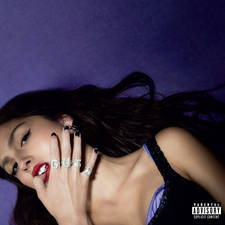Largely manufactured furore shows Jaguar succeeded at getting people talking
3 December 2024, 07:42 | Updated: 3 December 2024, 09:09

The sleepy Jaguar has had a sudden awakening.
After months of gentle provocation, the British carmaker has unveiled its latest model: a fully electric "concept with bold forms and exuberant proportions to inspire future Jaguars".
As to be expected we've been bombarded with marketing speak alongside the launch of the Type 00, the biggest rebrand in the company's 102-year history.
The car is "striking through imitation and the ordinary" but isn't to everyone's taste. Some people decided they didn't like it before they even saw it because of an advert published last month.
The car didn't actually feature in the advert at all.
Instead, it showed a diverse group of models swaying in brightly coloured outfits. That was enough to turn some people off.
The feeling was that this was a cultural departure from "old Jaguar", when adverts featured white, male British actors in sharp suits behind the wheel of a car. The company was accused of "abandoning Jaguar's traditional customers".
Some may be surprised by the level of (faux) outrage, including from the boss of rival carmaker Tesla.
Posting on X, Elon Musk, said: "Do you sell cars?" A slew of chatter ensued about the identity of the iconic British carmaker. Suddenly people without any previous interest in cars or about the sanctity of the Jaguar brand had a view. Nigel Farage, the newly elected MP for Clacton, also chimed in.
The advert was brandished "woke" and "narcissistic", criticisms that quickly veered into homophobic abuse.
Rawdon Glover, Jaguar's managing director, criticised the "blaze of intolerance" the advert had triggered.
"We need to re-establish our brand and at a completely different price point so we need to act differently. We wanted to move away from traditional automotive stereotypes.
"If we play in the same way that everybody else does we'll just get drowned out."
Designed to get people talking
Perhaps, unsurprisingly, the furore was to a large degree manufactured. Jaguar said it wanted to get people talking.
It is, after all, hoping to replicate the successes of the E-Type, one of the most iconic cars of all time.
While the company talks warmly about its "traditional customer base", it has made no secret of the fact it needs to find new buyers to revamp what has become a tired brand.
While the Jaguar Land Rover Group is enjoying record sales, it's Land Rover that is doing the heavy lifting, with Jaguar struggling to stay profitable.
It's struggling to stay relevant in the face of fierce competition in a rapidly evolving industry, where many Chinese brands are delivering aggressively on technology and price.
Jaguar has already made its statement of intent: it is going all in with a fully electric fleet by 2026. Inconsistent demand has forced the pledge back by a year but it's going for broke, targeting a higher price point and a premium clientele.
JLR is trying to take the brand to an international, elite market.
Perhaps that explains the futuristic marketing. This inevitably involves a departure from its British past. Mr Glover said 85% of future Jaguar customers would be new to the company.
It explains why so many have been left feeling perplexed by the company's promise to embrace the future while embracing the past.
Jaguar said the change was about recognising the company was no longer "a heritage brand" but a "brand with heritage". Getting the balance right is of existential importance.
(c) Sky News 2024: Largely manufactured furore shows Jaguar succeeded at getting people talking






